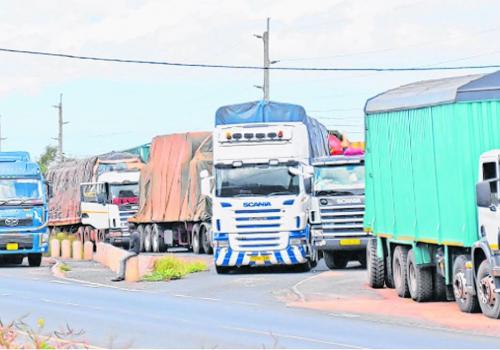Members of the business community yesterday commended Tanzania and Kenya for agreeing to scrap a host of trade barriers. During a ministerial meeting held here at the weekend, the two countries agreed to resolve 30 out of 64 barriers impeding cross-border business. “This is a positive development because such barriers, especially non-tariff barriers, impede business growth,” said Mr Hussein Sufian, Bakhresa Group corporate manager. He said the move by the two governments to address the notorious drawbacks would pave way for businesses to prosper. He said it was no secret that NTBs have failed some key businesses in the region to prosper as anticipated. Bakhresa Group, one of the leading local Tanzanian companies, exports juice and energy drinks to Kenya. Until the recent past, the Dar es Salaam-based conglomerate used to sell wheat flour to the Kenyan market before it halted apparently due to uneasy trade relations between the two countries. “Because of that we have lost a lucrative market. We need to start afresh establishing market contacts,” he told The Citizen on the phone.
He added that given that the two governments have agreed to normalise trade relations, his company would resume exports of its products to Kenya. Mr Stephen Chamle, an information and communication director with an entity called the Tanzania Business Community, commended the new development. He said scrapping of the most notorious trade barriers would spur trade between the two neighbouring countries. “Opportunity never comes twice. It is high time traders used this rare chance optimally,” Mr Chamle added. Tanzania is traditionally one of Kenya’s biggest trading partners in Africa, worth about Sh945 billion a year in volume of trade between them. Some 513 companies from Kenya have invested in Tanzania with $1.7 billion worth of capital, and employ some 51,000 Tanzanians. On the other hand, 30 Tanzanian firms have invested Sh400 billion in Kenya, employing 2,040 Kenyans. As the two leading economies within the EAC appear to be coming to normalize trade relations, the regional bloc has to review and harmonise the Covid-19 testing charges.
The six partner states have also to ensure the validity and mutual recognition for the certificates to ensure safe and smooth movement of goods and persons. This was among the recommendations by the EAC Sectoral Council on Trade, Industry, Finance and Investment which just concluded its meeting here. The meeting noted with concern the non-recognition of Covid-19 certificates by partner states and unharmonised charges for Covid-19 testing, saying it was counter-productive to cross border businesses. It further noted that notification procedures were not being followed, a situation that essentially constitutes yet another non-tariff barrier to trade within the region. The Sectoral Council met under the chairmanship of Kenya’s Cabinet Secretary for Industrialisation, Trade and Enterprise Development, Ms Betty Maina.
It directed South Sudan and Uganda to operationalise the Nimule/Elegu One Stop Border Post (OSBP) by deploying all relevant officials to the facility. The Sectoral Council had been informed that the Nimule OSBP was completed and handed over to the South Sudan and was pending full operationalisation by having all relevant officials from border agencies including from Uganda operating from the OSBP. The council further directed Partner States to use regional mechanisms or structures such as the EAC Standards Committee and SCTIFI itself to resolve disputes among themselves as opposed to taking unilateral interventions.
